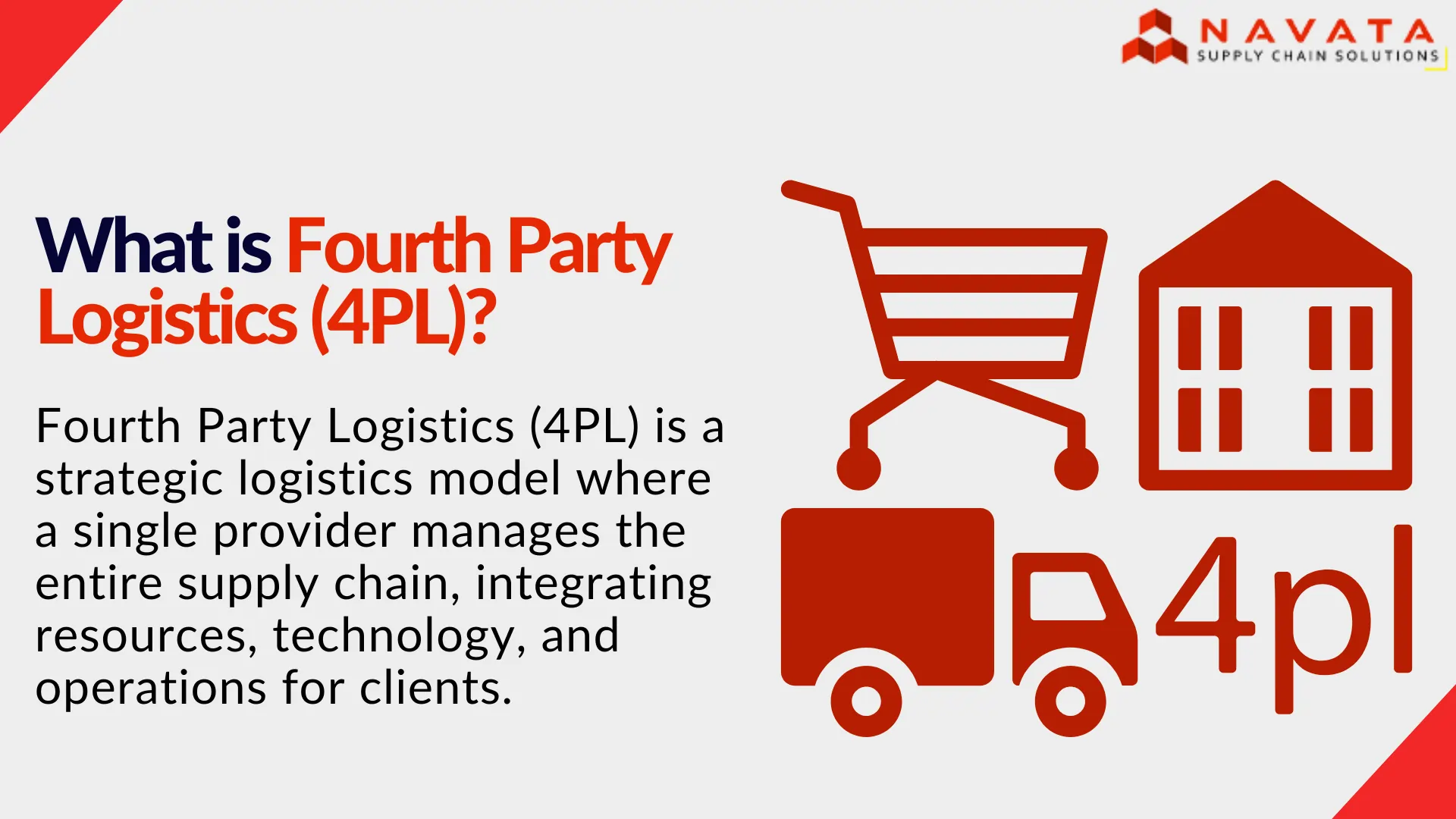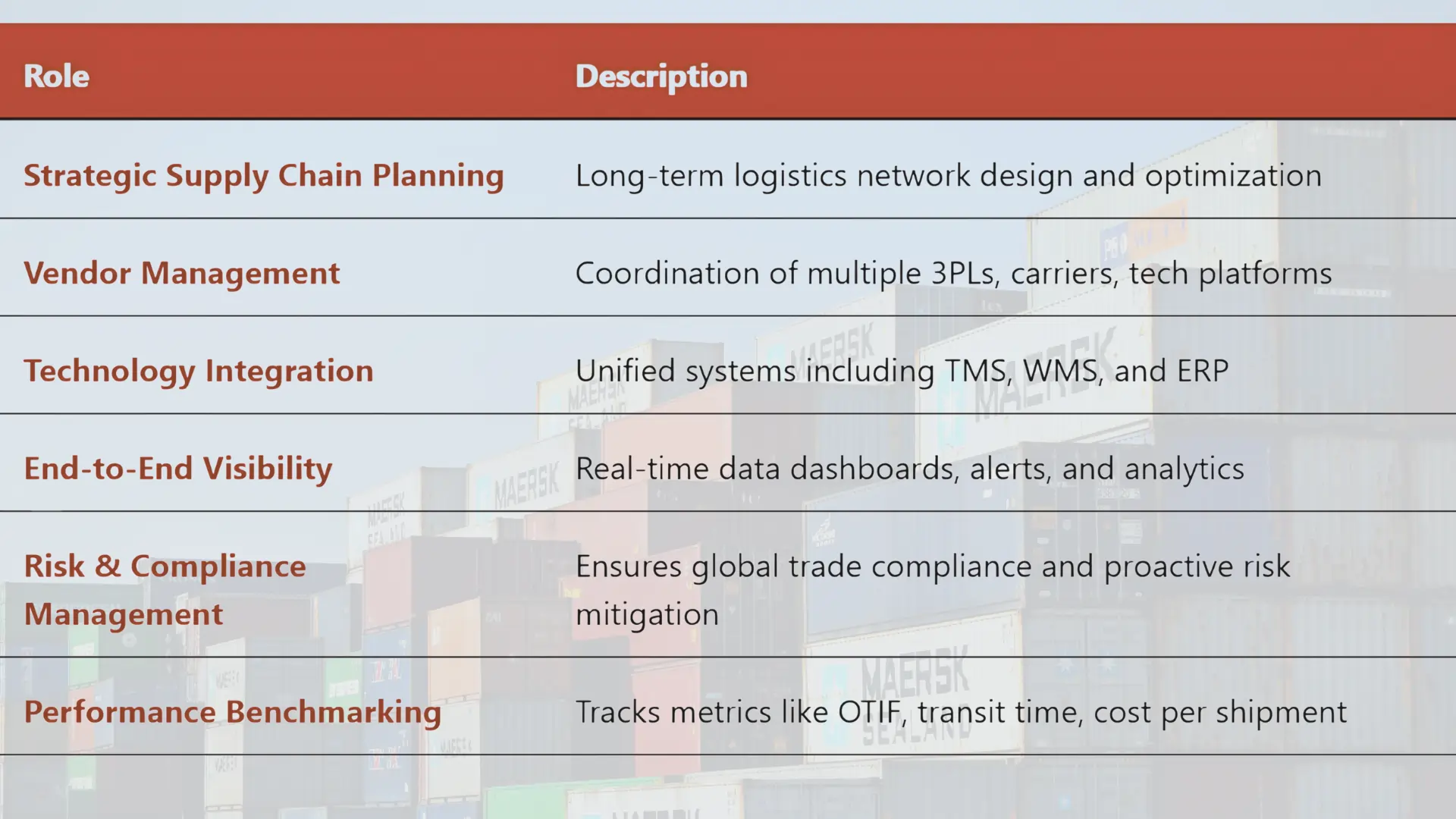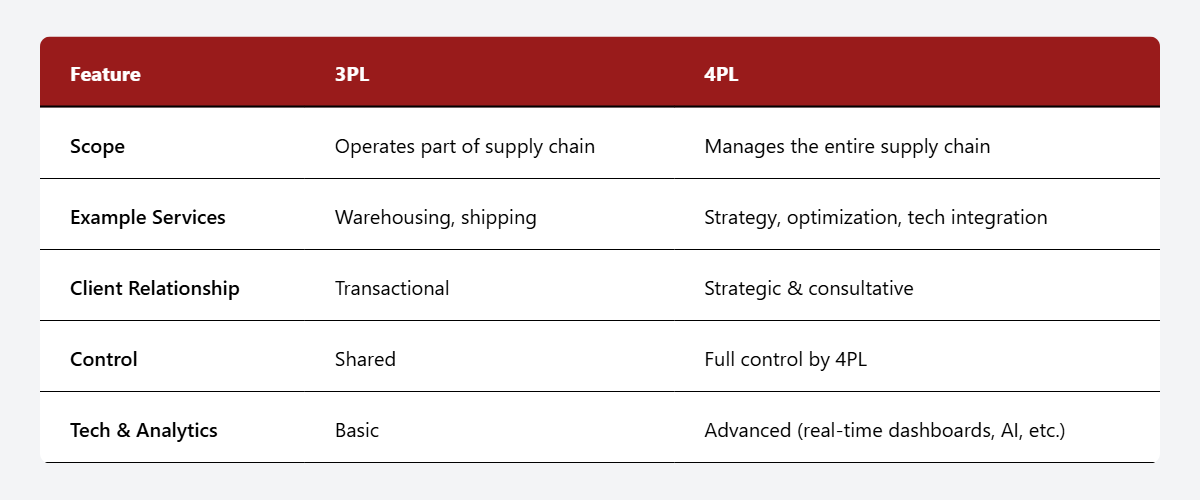What is Fourth Party Logistics (4PL)?
Fourth Party Logistics (4PL) refers to an integrated logistics model where a single provider oversees and manages the entire supply chain on behalf of a business. Unlike a Third Party Logistics (3PL) provider, which handles specific logistics functions like warehousing or transportation, a 4PL provider offers a broader, strategic role.
A 4PL partner serves as the single point of contact for all logistics operations, taking charge of multiple service providers (including 3PLs), ensuring alignment across all logistics functions.
In this Blog we will discuss about what is fourth party logistics? its model and advantages.
✅ Key Term: 4PL = Strategic logistics integrator that manages people, processes, and technology across the full supply chain.

How Does Fourth Party Logistics Model Work?
In a 4PL logistics arrangement, the 4PL company designs and implements a holistic supply chain solution using its own technology and expertise, while coordinating with multiple logistics vendors.
Here’s how it works:
Supply Chain Design: The 4PL develops a tailored supply chain strategy aligned with the client’s business goals.
Vendor Management: It manages multiple logistics providers, often including several 3PL companies.
Technology Integration: Uses proprietary platforms to unify warehouse, inventory, order, and transportation data.
Data & Analytics: Provides real-time reporting, demand forecasting, and decision support.
Execution & Optimization: Oversees execution and continuously optimizes performance across the logistics cycle.
The 4PL acts as the architect and coordinator of your end-to-end supply chain, from inventory optimization to Last-mile delivery.
Key Roles and Services of a 4PL Provider

Advantages of Fourth Party Logistics
Centralized Supply Chain Management
A 4PL provider gives you a single dashboard view of your entire logistics operation, helping eliminate silos and inefficiencies.Access to Advanced Logistics Technology
Most 4PLs provide access to high-end tech like TMS (Transportation Management System), WMS (Warehouse Management System), and predictive analytics—tools that are otherwise costly to acquire in-house.Improved Visibility and Control
4PLs provide real-time tracking, full transparency, and supply chain visibility through centralized reporting platforms.Strategic Focus
With logistics execution off your plate, your internal teams can focus on growth, customer experience, and core competencies.Scalability
The 4PL model can easily scale logistics up or down depending on seasonality, demand fluctuations, or business expansion.
Disadvantages of Fourth Party Logistics
Higher Cost Compared to 3PL
Since 4PL offers strategic control and integrates multiple services, it can be more expensive than hiring individual 3PL logistics services.Loss of Direct Control
Businesses may feel disconnected from daily logistics operations since the 4PL becomes the main point of contact.Complex Implementation
Transitioning from 3PL or in-house to 4PL often requires system upgrades, onboarding, and cultural change.Vendor Dependency
Over-reliance on a single partner could lead to complications if the 4PL provider underperforms.
When Should You Use a 4PL Provider?
Your supply chain has grown too complex to manage internally.
You’re dealing with multiple vendors and lack visibility or coordination.
You’re entering new markets and need end-to-end logistics support.
You want to improve inventory management, delivery performance, or cost-efficiency.
You need unified technology and real-time reporting across your supply chain.
3PLs manage logistics execution. 4PLs manage strategy, optimization, and execution.
4PL vs 3PL: Quick Comparison

Real-World Examples of 4PL Success
Outsourced its European logistics to a 4PL provider that manages warehousing, transport, and analytics. Result: ~10% logistics cost savings.
Uses a 4PL to manage global supply chains across multiple continents, improving shipment visibility and reducing inventory costs.
Provides 4PL services that integrate customers’ supply chains across multiple 3PLs, offering centralized control and improved agility.
Delivers supply chain strategy and 4PL consulting for global brands, using analytics to drive efficiencies across warehousing and transport.
Make Supply Chain Your Competitive Advantage
Conclusion
Fourth Party Logistics is no longer just for global giants—it’s increasingly relevant for mid-sized businesses looking for strategic control, visibility, and optimization across the entire logistics operation. From improved inventory management solutions to data-backed decision-making, a reliable 4PL provider can help you unlock growth, reduce inefficiencies, and stay competitive in the fast-evolving supply chain landscape.
Whether you’re evaluating 3PL vs 4PL, expanding globally, or seeking smarter logistics strategy, understanding the 4PL logistics model could be your first step toward supply chain excellence.
Thank You For Reading: What is Fourth Party Logistics (4PL)?
Powered By 360Presence


6 Comments